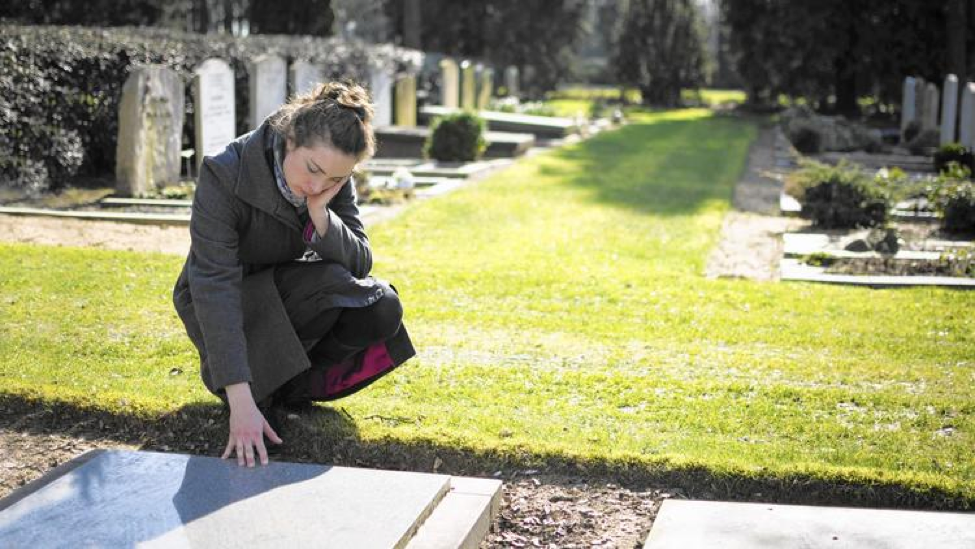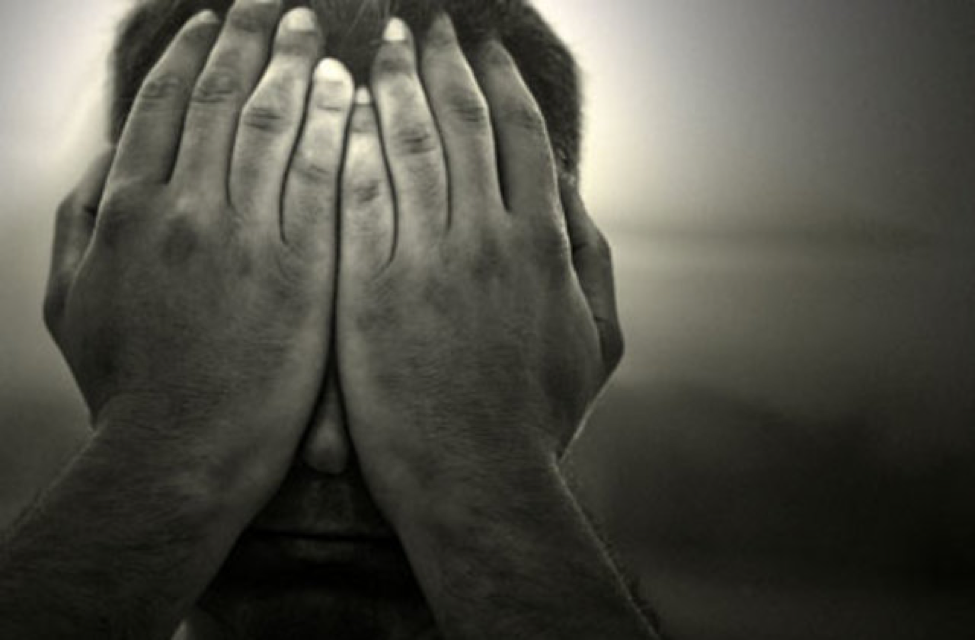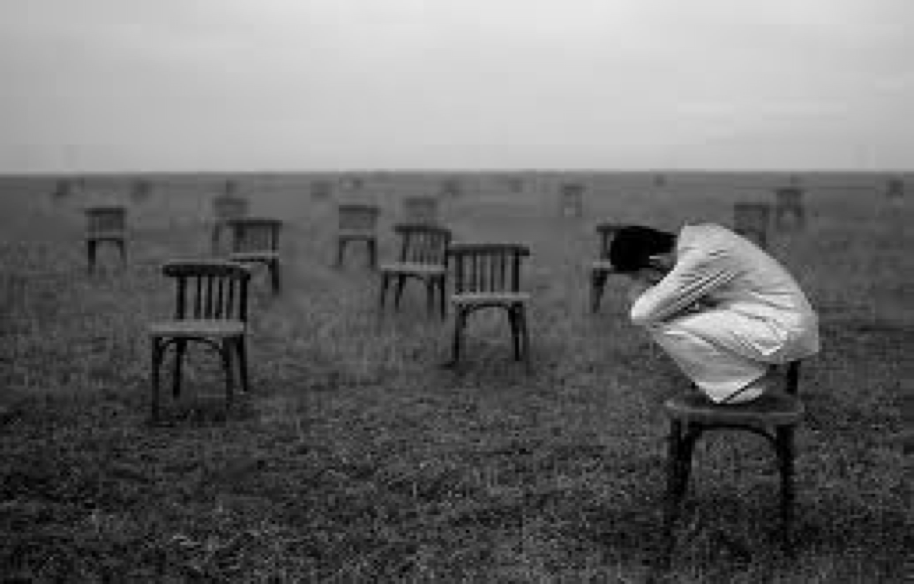What is Grief?
Grief is a natural response to loss. It’s the emotional suffering you feel when something or someone you love is taken away. The more significant the loss, the more intense your grief will be. You may associate grief with the death of a loved one, which is often the cause of the most intense type of grief. However, any type of loss can cause grief for an individual. Some examples are:
- Divorce or relationship breakup
- Loss of health
- Losing a job
- Loss of financial stability
- A miscarriage
- Retirement
- Death of a pet
- A loved one’s serious illness
- Loss of a friendship
- Loss of a loved one

How do individuals grieve?
The feelings of loss and grief can seem overwhelming, sometimes as if they have no end. It can feel like it hits you in the gut, spreads throughout your heart, and makes you feel hopeless. The feeling of grief can last for hours, day, weeks, months and even years. How individuals grieve depends on many factors: their support system; the circumstances of the death; the response by family members, friends, and the criminal justice system; the nature of the relationship with the deceased; religious or cultural beliefs and customs; and the individual’s coping skills. No two people will grieve in the same way. However, grievers often find it helpful to speak with others experiencing loss, as there are common reactions and experiences that prove useful to share.
Expectedly, the grieving process takes time. Healing happens gradually; it cannot be forced or hurried. There is no “normal” timetable for grieving. Some people start to feel better in weeks or months. For others, the grieving process is measured in years. Whatever your grief experience, it’s important to be patient with yourself and allow the process to naturally unfold.

Grief Reactions
Denial
(“This can’t be happening to me.”) Often after learning of the death of a loved one, especially a sudden death, the griever will experience a feeling of shock, numbness, and disbelief that their loved one is gone. To be confronted by the death of a loved one is so horrible, devastating, and absolute that many individuals are unable to comprehend the overwhelming news. Therefore, in order to process the shock, many grievers will immediately disbelieve that a loved one has died. Denial is a coping mechanism and a normal and functional grief reaction.
Anger
As the reality of facing life without a loved one sets in, many grievers feel frustrated, cheated, and abandoned. Those left to grieve may become angry at their loved one for leaving them; at the doctors who should have done more; at other family members for not having the same feelings; and, in a case of death as a result of a violent crime, at the person or persons responsible for the crime, as well as the entire criminal justice system.
When death occurs as a result of a violent crime, grievers’ anger may be compounded and their reactions more complicated. Many homicide grievers are surprised and frightened by the intensity of anger and violence they feel toward those who killed their loved one(s). Homicide grievers may devise elaborate plans of revenge that involve the murderer suffering more cruelly and graphically than the victim. To fantasize acting out rage or revenge is a normal reaction for a bereaved survivor. By verbalizing these feelings, perhaps within a support group setting, grievers can try to move past the anger toward healing.
Guilt
Grievers may encounter intense feelings of guilt after someone they love has died. The guilt may come out of unresolved conflicts with the deceased, or through thinking they could have somehow prevented the death of their loved one. While guilt is a normal grief reaction, most often factors outside a survivor’s control cause death. Therefore, it may help to process feelings of guilt to speak with individuals who knew the loved one, as well as the circumstances of the death, so that they may help the survivor realistically evaluate feelings of guilt and responsibility.

Other Common Grief Reactions Include:
- Feelings of powerlessness
- Numbness
- Hypersensitivity
- Hyper-vigilance
- Overwhelming sense of loss and sorrow
- Disruptive sleep patterns
- Inability to concentrate
- Lethargy
- Fear and vulnerability
- Confusion
- Social withdrawal
- Change in eating habits
- Restricted affect (reduced ability to express emotion)
- Questioning of faith
- Physical and financial problems; and
- Constant thoughts about the circumstances of the death
Grief Spasms
Grievers may feel, even years after the loss of a loved one, brief periods when feelings of loss are particularly intense. These “grief spasms” are usually brought about by “triggers.” Triggers are occasions, scents, tastes, songs, or other stimuli which remind grievers of their loved one and loss. For example, birthdays, anniversaries, weddings, or driving by the place of the death may bring about intense feelings of grief for those learning to cope with loss. As time passes, most grievers find that these grief spasms lose their intensity and frequency, and are a normal part of processing the loss of a loved one.

What are some helpful ways of overcoming your grief?
- Take care of yourself: Grief commonly results in disrupted sleep, a loss of appetite, and a lack of interest in everyday tasks. All these factors can affect your health and well-being. Be mindful of your health and daily habits. Try to get adequate sleep, eat a healthy diet, and exercise regularly. You might find that including a friend in meal or exercise routines can keep you motivated. Consider a medical checkup to ensure your health has not declined, especially if you have any existing health conditions.
- Support groups. In adjusting to their lives after the loss of a loved one, many grievers find it helpful to share their feelings with others who are in similar circumstances. Many communities have support groups established through hospitals, churches or social service agencies that lend an atmosphere of support and empathy, which may normalize a survivor’s reactions.
- Counseling with a professional therapist may be an option as well, for assistance and guidance through the grieving process. To maximize benefits from counseling, grievers should look for counselors experienced in dealing with grief issues. When an individual is grieving, they sometimes do not have the energy to visit a clinic for psychological services. Therefore, it can be helpful to look for a therapist that conducts sessions online.
- Allow yourself to experience the pain of loss: As much as it hurts, it is natural and healthy to grieve. Sometimes people feel guilty about the way they feel, thinking they should just “get over it.” Let yourself grieve and fully experience your feelings, such as shock, sadness, anger, and loneliness. Don’t judge yourself for any feelings you have, even if you think you shouldn’t have them. Let yourself react in ways that help you process and release intense emotions, even if it means crying or screaming. Some people set aside private time every day to think about their loved one and experience the feelings that arise. This approach is especially helpful for those who have difficulty showing their feelings to others.
- Social support from friends and family members: It is very beneficial to lean on the people who care about you, even if you take pride in being strong and self-sufficient. Rather than avoiding them, draw friends and loved ones close, spend time together face-to-face, and accept the assistance that’s offered. Often, people want to help but don’t know how, so tell them what you need, whether it’s a shoulder to cry on, help with funeral arrangements, or just someone to hang out with. If you don’t feel you have anyone you can regularly connect with in person, it’s never too late to build new friendships.
You are not alone in your grief. Let us help.

